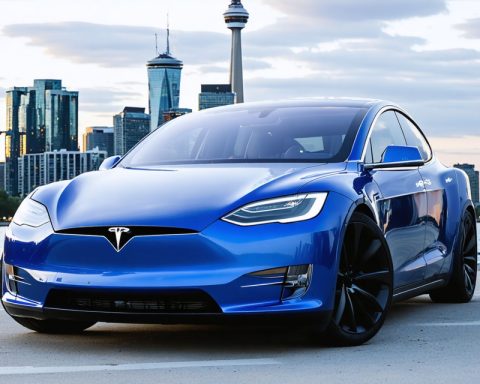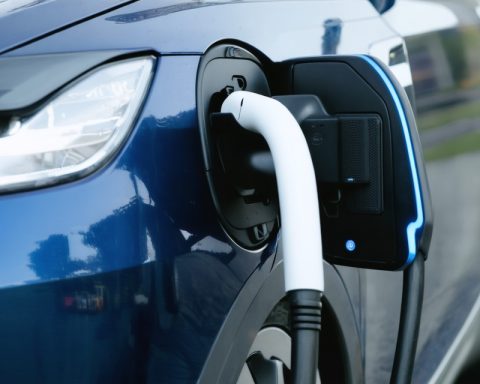- AI is transforming automotive technology, accelerating change with intelligent systems.
- Electric vehicles (EVs) promise cleaner transportation, with AI optimizing performance and efficiency.
- AI algorithms process data from vehicle sensors, improving safety and adapting to conditions in real-time.
- Notable technology like Tesla’s Autopilot illustrates AI’s role in autonomous navigation and energy efficiency.
- The integration of AI with electric powertrains leads to ‘smart driving’ and a new era of adaptive vehicles.
- Continuous feedback from AI-managed EVs to manufacturers drives ongoing innovation and improvements.
- Robust cybersecurity and privacy measures are essential in managing data from intelligent vehicles.
- The automotive industry’s transformation leans on AI and electric engines for smarter, cleaner transportation.
In the ever-evolving landscape of automotive technology, a revolutionary force is accelerating change faster than ever before: Artificial Intelligence. Picture a highway transformed, where sleek electric vehicles glide almost silently, their tireless engines managed by intelligent systems that adapt in real-time to every twist and turn. This is not a distant future—it’s today’s rapidly unfolding reality.
Electric vehicles (EVs) have captured imaginations with their promise of a cleaner planet and a smoother ride. However, the real game-changer isn’t the shiny electric motor alone. It’s the sophisticated AI that powers these engines, optimizing performance like never before. Imagine an engine smart enough to learn on the fly, adapting its energy use to extend your journey at every stop.
AI’s role in automotive innovation is profound and multifaceted. Its algorithms process vast amounts of data generated by the vehicle’s sensors, analyzing everything from speed and terrain to weather conditions and driving patterns. This intelligent processing enables the engine to make split-second adjustments, improving efficiency and enhancing safety.
Consider Tesla’s Autopilot technology, a pioneer in this field. This system leverages AI to not only navigate roads autonomously but also refine energy consumption, allowing the vehicle to travel farther on a single charge. The combination of AI and electric powertrain technology is crafting a new era of ‘smart driving’, where the car isn’t just a machine but an adaptive partner on the road.
Driving an AI-managed EV isn’t merely about moving from point A to B—it’s about engaging in an experience that is ever-learning and ever-improving. These cars provide real-time feedback to manufacturers, promoting continuous enhancements and paving the way for innovations that were once mere science fiction fantasies.
While the benefits are clear, this innovation does not come without its considerations. The need for robust cybersecurity and privacy protocols is crucial, as these intelligent vehicles collect a wealth of data. Yet, the promise of AI in improving sustainability, efficiency, and safety is a powerful motivator for overcoming these challenges.
The takeaway? The automotive industry is undergoing a transformation propelled by both electric engines and AI, setting the stage for a future of smart, efficient, and cleaner transportation. As AI continues to evolve, who knows what the next chapter holds? One thing is certain—those who embrace this digital dynamism will lead the charge into the new automotive era.
How AI-Driven Electric Vehicles Are Revolutionizing Our Roads
AI’s Role in Electric Vehicles: An In-depth Look
Electric vehicles (EVs) are at the forefront of a transportation revolution, but it’s the sophisticated artificial intelligence (AI) systems within them that are truly transforming the landscape. Here are several aspects that highlight the dynamic interplay between AI and EV technology, as well as actionable insights and industry trends that are shaping the future of driving.
Expanding on AI Capabilities in EVs
1. Real-Time Data Processing: EVs equipped with AI use sensors that constantly feed data into advanced algorithms. This data includes speed, terrain, weather conditions, and even the behavior of other drivers on the road. For instance, a rainy drive might prompt the system to adjust traction control for improved safety.
2. Predictive Maintenance: AI systems can predict when parts of the vehicle might require maintenance before a breakdown occurs. By analyzing patterns and identifying anomalies in the data, predictive maintenance can save both time and costs for owners [source: IBM Research on Predictive Maintenance].
3. Energy Management: The optimization of energy consumption is a key benefit of AI in EVs. AI adapts driving patterns and routes to conserve power, extending the range of electric vehicles. This is particularly useful for long drives and can significantly reduce range anxiety commonly associated with EV ownership.
Industry Trends and Market Forecasts
– Growth of AI in Automotive Industry: The global automotive AI market size is anticipated to grow significantly, with projections reaching over $15 billion by 2030 [source: Allied Market Research].
– Increased Adoption of Autonomous Features: More manufacturers are integrating semi-autonomous features, driven by AI, in their vehicle lineups. This not only enhances the driving experience but also provides a testbed for full autonomy in the future.
Pressing Questions and Their Answers
– How safe are AI-driven vehicles? Safety remains a top priority. Systems like Tesla’s Autopilot undergo rigorous testing and constant updates. Still, legislative frameworks are catching up to ensure standards are met universally.
– What are the cybersecurity risks? AI processes sensitive data making robust cybersecurity protocols essential. Manufacturers like Tesla and Rivian are investing heavily in cybersecurity to protect their vehicles and user data.
– Can AI improve battery life? Yes, through efficient energy management and real-time learning. AI can significantly enhance a battery’s performance by optimizing charging cycles and regenerative braking systems.
Real-World Use Cases
1. Tesla’s Autopilot: This industry leader not only navigates roads autonomously but also optimizes energy use, enhancing range and driving efficiency.
2. Waymo: Alphabet’s self-driving car project has successfully implemented AI to navigate cityscapes autonomously, reducing the strain on urban infrastructures.
Pros and Cons Overview
Pros:
– Enhanced safety features
– Superior energy efficiency
– Predictive maintenance capabilities
Cons:
– High initial costs
– Cybersecurity concerns
– Legislative and ethical challenges
Actionable Recommendations
– Stay Informed: As a consumer, keep abreast with the latest in AI technology advancements and legislative changes concerning vehicle autonomy.
– Consider AI-readiness: If you’re planning to purchase an EV, evaluate how deeply integrated AI is within the vehicle, as it will impact both performance and resale value.
– Evaluate Security Features: Inquire about the cybersecurity measures in place for any connected vehicle to ensure your data’s safety.
For more insights into technological advancements and future trends, visit Tesla.
Conclusion
AI’s promise in reshaping the automotive world is immense, offering a blend of efficiency, safety, and sustainability. By fully understanding and embracing these technologies, both consumers and industries can ensure a smoother, cleaner drive into the future.













